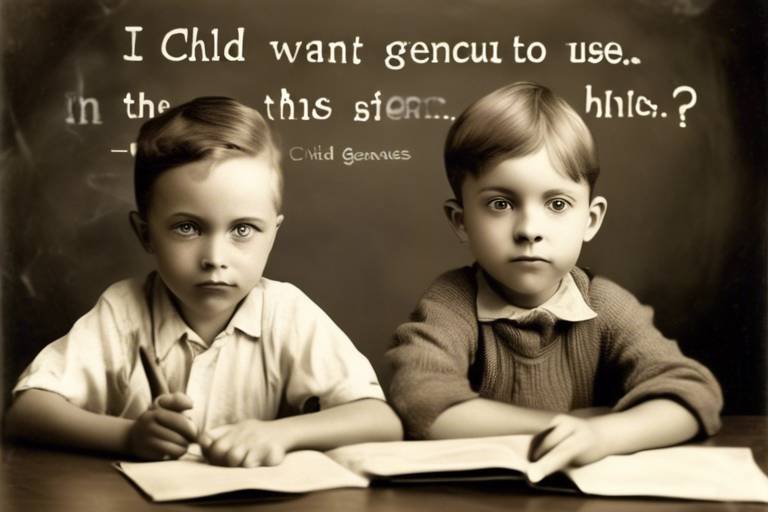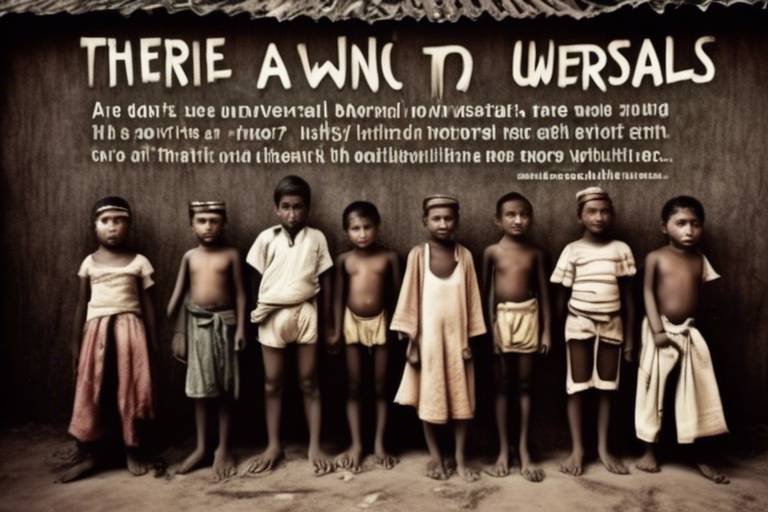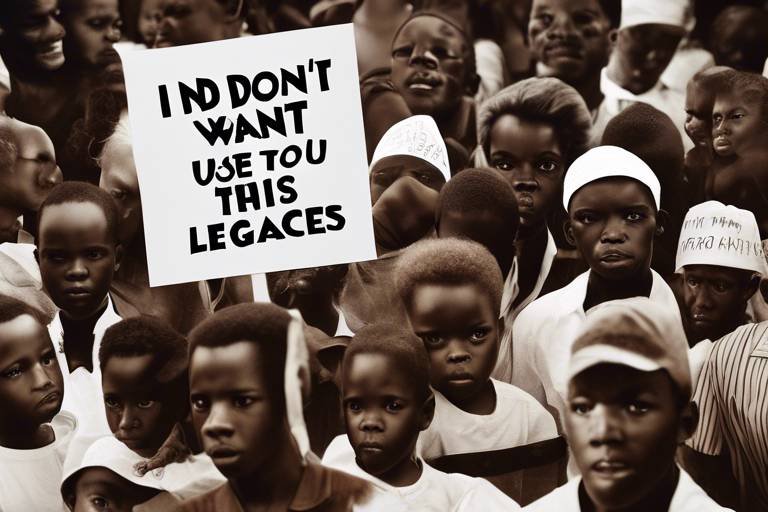Why Is Racism a Moral Evil?
Racism is not just a social issue; it is a profound moral evil that undermines the fabric of humanity. At its core, racism is an irrational belief that one race is superior to another, leading to discrimination, prejudice, and systemic inequality. This isn't merely an abstract concept; its implications ripple through every aspect of society, affecting individuals and communities alike. Think of racism as a poison that seeps into the very foundation of our shared existence, tainting relationships and eroding trust among people. It is essential to understand why racism is considered a moral failing and how it impacts our collective human dignity and equality.
To grasp the full weight of racism's moral implications, we must recognize the difference between individual prejudice and systemic discrimination. Individual prejudice refers to personal biases and negative attitudes towards others based on their race, often stemming from ignorance or fear. On the other hand, systemic discrimination is embedded in societal structures, laws, and institutions, creating a framework that perpetuates inequality. This pervasive nature of racism means that it can manifest in countless ways, from subtle microaggressions to overt acts of violence, making it crucial for us to address both individual and systemic forms of racism.
Racism's moral evil is not a relic of the past; it is a living issue that continues to shape our world today. It has the power to dehumanize and diminish individuals, stripping away their dignity and sense of worth. Imagine a world where people are judged not by their character or abilities, but solely by the color of their skin. This reality is not just a hypothetical scenario; it is a daily experience for countless individuals who face discrimination and marginalization. The emotional toll of such experiences can lead to a cycle of despair and hopelessness, further entrenching the moral failures associated with racism.
Moreover, racism creates divisions within society, fostering an environment where hostility and mistrust thrive. When people are pitted against one another based on race, it undermines the very principles of justice and equality that we strive to uphold. In essence, racism is a betrayal of our shared humanity. It is a reminder that, despite our differences, we are all part of the same human family. By recognizing and confronting racism, we take a crucial step towards healing and building a more equitable society.
In conclusion, racism is a moral evil because it fundamentally violates the principles of justice, equality, and respect for human dignity. It is a pervasive force that not only harms its victims but also erodes the moral fabric of society as a whole. Understanding the depth of racism's impact is essential for fostering empathy and creating a world where everyone, regardless of their race, can thrive. By standing against racism, we affirm our commitment to a just and equitable future for all.
- What is the difference between racism and prejudice? Racism is a systemic issue that involves discrimination based on race, while prejudice refers to personal biases or negative attitudes towards individuals based on their race.
- How does racism affect society as a whole? Racism erodes trust, fosters division, and undermines social cohesion, ultimately harming the collective well-being of communities.
- What can individuals do to combat racism? Individuals can educate themselves, engage in conversations about race, support anti-racist policies, and stand up against discriminatory practices.
- Why is understanding the historical context of racism important? Understanding the historical roots of racism helps us recognize its ongoing impact and informs our efforts to address systemic inequalities.

The Definition of Racism
Understanding racism is crucial for addressing its moral implications. At its core, racism is the belief that one race is inherently superior or inferior to another, leading to discrimination and prejudice based on a person's race or ethnicity. This toxic ideology manifests in various forms, from overt acts of hate to more subtle, systemic inequalities that permeate our institutions and social norms.
It's essential to distinguish between two primary dimensions of racism: individual prejudice and systemic discrimination. Individual prejudice refers to personal biases and discriminatory attitudes that individuals may hold against others based on their racial or ethnic backgrounds. This can be seen in everyday interactions, where someone might harbor negative feelings towards a person solely because of their race.
On the other hand, systemic discrimination is more insidious and involves the policies, practices, and cultural norms within institutions that produce unequal outcomes for different racial groups. This form of racism is often embedded in the fabric of society, making it challenging to detect and address. For example, consider how educational systems may disproportionately disadvantage students of color through funding disparities or biased disciplinary actions. These systemic issues can perpetuate cycles of poverty and limit opportunities for entire communities.
Racism is not just an individual failing; it is a pervasive societal issue that can lead to significant harm. It is a moral evil that undermines the foundational principles of human dignity and equality. When we allow racism to persist, we not only harm those who are targeted but also degrade the moral fabric of our society. The impact of racism is far-reaching, affecting everything from economic opportunities to mental health and community cohesion.
To further illustrate the various forms of racism, we can categorize them into different types:
- Overt Racism: Openly expressed racist beliefs and actions, such as hate crimes or racial slurs.
- Covert Racism: Subtle and often unintentional discriminatory behaviors that may not be immediately recognized.
- Institutional Racism: Policies and practices within institutions that disadvantage certain racial groups.
- Cultural Racism: Societal beliefs and customs that promote the idea of racial superiority.
In summary, racism is a multifaceted issue that encompasses both personal prejudices and systemic injustices. Understanding its definition is the first step toward recognizing its moral implications and the urgent need to combat it in all its forms. By acknowledging the different dimensions of racism, we can better equip ourselves to challenge these harmful ideologies and work towards a more equitable society.

The Historical Context of Racism
To truly understand why racism is considered a profound moral evil, we need to take a step back and look at its historical context. Racism is not a new phenomenon; it has deep roots that stretch back centuries, influencing societies and shaping cultural narratives in ways that still resonate today. It’s crucial to recognize that racism is not merely a product of individual prejudice but is often embedded within the fabric of social structures. This systemic nature of racism means that it perpetuates inequality, often without individuals even realizing it.
The origins of racism can often be traced back to colonialism, a period marked by the domination of one nation over another, often justified by a belief in racial superiority. Colonial powers sought to exploit resources and subjugate indigenous populations, using race as a tool to rationalize their actions. This led to the establishment of hierarchies that placed certain races above others, creating a legacy of oppression that would last for generations. The ideologies developed during this time have not only shaped the attitudes of those in positions of power but have also seeped into the everyday lives of individuals, influencing perceptions and interactions across cultures.
Colonialism played a significant role in shaping racist ideologies. The justification for oppression and exploitation was often couched in terms of racial superiority, with colonizers viewing themselves as 'civilizers' of 'inferior' races. This mindset allowed for the dehumanization of entire populations, leading to atrocities that are hard to fathom. For instance, the transatlantic slave trade is a glaring example where millions were forcibly taken from their homes, stripped of their identities, and subjected to brutal conditions. The impact of such actions has left lasting scars on societies, creating a cycle of trauma that persists even in modern times.
Analyzing specific case studies reveals the deep-seated consequences of colonialism on indigenous populations. Take, for example, the experience of Native Americans in the United States. Their lands were taken, cultures were suppressed, and their populations decimated through violence and disease. Today, many Native communities continue to face challenges stemming from this historical injustice, including poverty, lack of access to education, and ongoing discrimination. Similarly, the legacy of British colonialism in India has resulted in social stratification and economic disparities that still affect the nation today.
The legacy of colonialism continues to affect contemporary society. The historical roots of racism contribute to modern inequalities and systemic injustices that persist today. For instance, in many countries, marginalized communities still face barriers to education, employment, and healthcare, often a direct result of historical policies that favored certain groups over others. The concept of institutional racism highlights how these disparities are not merely the result of individual actions but are woven into the very systems that govern society. Understanding this context is essential for addressing the ongoing issues of racism and working towards a more equitable future.
In conclusion, the historical context of racism is a complex tapestry woven from centuries of oppression, exploitation, and cultural narratives that continue to shape our world today. Recognizing this history is the first step in dismantling the systems that perpetuate racism and working towards a society that values human dignity and equality for all.
- What is the difference between individual racism and systemic racism?
Individual racism refers to personal beliefs and actions that discriminate based on race, whereas systemic racism encompasses the policies and practices within institutions that create and sustain racial inequality. - How can understanding the history of racism help in combating it today?
Understanding the historical context allows us to identify the roots of current inequalities and informs more effective strategies for advocacy and reform. - What role does education play in addressing racism?
Education is crucial in raising awareness about the history and impact of racism, promoting empathy, and fostering a culture of inclusivity and respect.
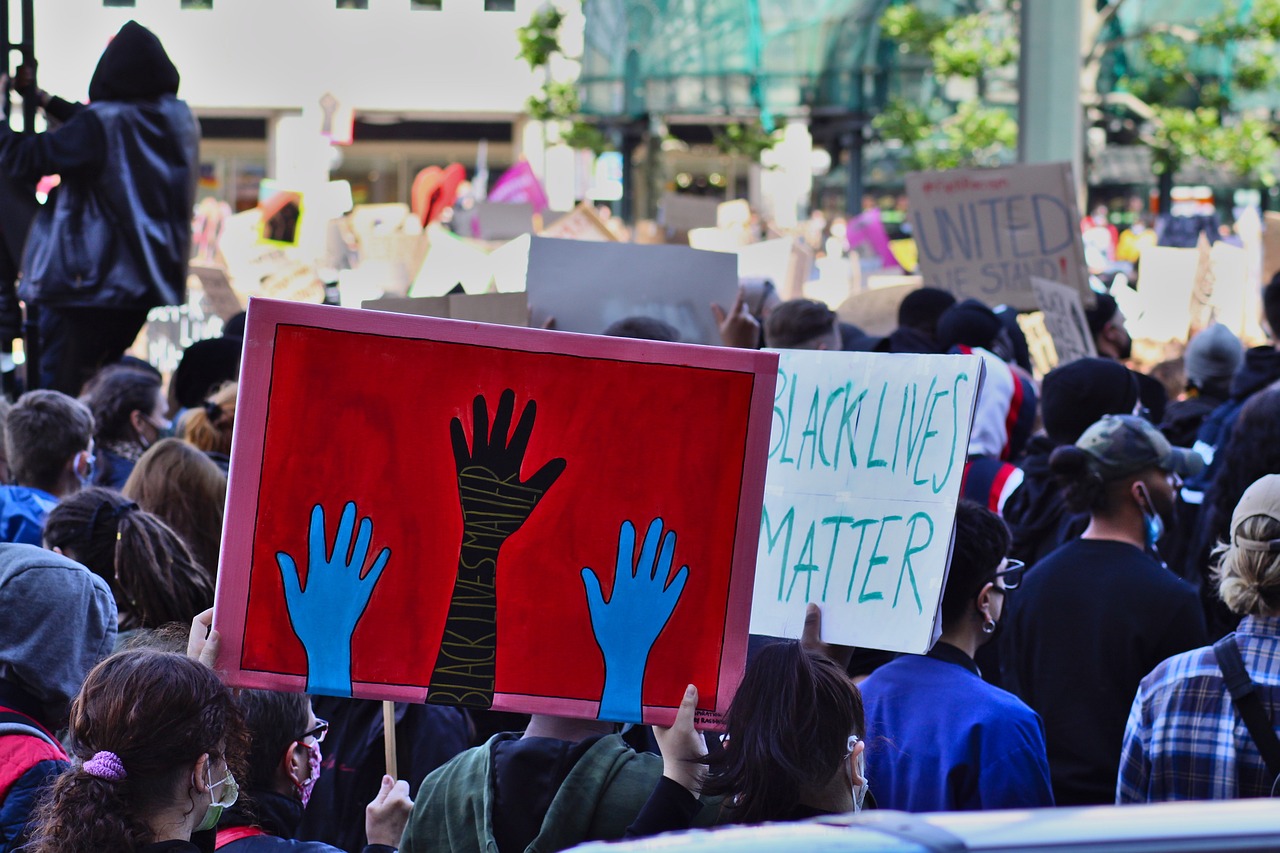
The Impact of Colonialism
Colonialism has left an indelible mark on the fabric of societies around the globe, shaping not only the political landscape but also the very ideologies that underpin racism. The justification of colonial expansion was often rooted in a belief of racial superiority, where colonizers viewed themselves as inherently better than the indigenous populations they sought to dominate. This mindset fostered an environment where exploitation and oppression were not only accepted but were considered a moral duty. The impact of colonialism is multifaceted and continues to resonate today, influencing social structures and perpetuating inequality.
At its core, colonialism was about control—control of land, resources, and people. This control was often justified through pseudo-scientific theories that categorized races hierarchically, suggesting that some races were more civilized or advanced than others. Such ideologies laid the groundwork for systemic racism, as they were institutionalized through laws and practices that marginalized entire populations. The consequences of this are profound:
- Displacement: Indigenous communities were often forcibly removed from their lands, leading to a loss of culture and identity.
- Economic Exploitation: Resources were extracted for the benefit of the colonizers, leaving local populations impoverished.
- Social Fragmentation: Traditional social structures were dismantled, creating divisions that persist to this day.
To understand the impact of colonialism, we must also examine its long-term effects on the psyche of both the colonized and the colonizers. For the former, the trauma of dispossession and cultural erasure has led to a struggle for identity and belonging. Many indigenous groups continue to grapple with the legacies of colonialism, facing challenges such as poverty, lack of education, and health disparities. On the other hand, colonizers often developed a sense of entitlement and superiority that can lead to a lack of empathy and understanding towards those who were oppressed.
Furthermore, the aftermath of colonialism has created a cycle of inequality that is difficult to break. Modern-day societies that were once colonies often grapple with the remnants of colonial rule, which can manifest in various forms, including:
| Modern-Day Issues | Description |
|---|---|
| Systemic Racism | Institutional practices that perpetuate racial inequality. |
| Economic Disparities | Wealth gaps between different racial and ethnic groups. |
| Cultural Appropriation | The exploitation of cultural elements from marginalized communities. |
In conclusion, the impact of colonialism is not just a relic of the past; it is a living reality that continues to shape our world. The ideologies born from colonialism have woven themselves into the very fabric of society, influencing everything from economic policies to social interactions. Recognizing this impact is the first step towards addressing the moral evil of racism and working towards a more equitable future.
Q: How does colonialism relate to modern racism?
A: Colonialism established ideologies of racial superiority that continue to influence systemic racism today. The structures and attitudes developed during colonial times persist, leading to ongoing inequalities.
Q: Can the effects of colonialism be undone?
A: While the legacies of colonialism are deeply entrenched, efforts such as reparations, education, and policy changes can help address and mitigate its effects.
Q: What can individuals do to combat racism stemming from colonialism?
A: Individuals can educate themselves about the history of colonialism, support marginalized communities, and advocate for policies that promote equity and justice.

Case Studies of Colonial Impact
The impact of colonialism on indigenous populations is a profound testament to the moral evil of racism. To truly understand this, we can look at several case studies that illustrate the devastating consequences of colonial rule. One of the most glaring examples is the treatment of the Native American tribes in the United States. Colonizers viewed these communities as obstacles to their expansion and prosperity. As a result, they enacted policies that led to the forced removal of tribes from their ancestral lands, often through violent means.
Another significant case is the British colonization of India, which not only exploited the country's resources but also imposed a rigid caste system that exacerbated social divisions. The British justified their actions by claiming a sense of racial superiority, which led to widespread suffering and the undermining of India's rich cultural heritage. The scars of this colonial past are still visible today, as many communities continue to grapple with the social and economic inequalities that were entrenched during colonial rule.
In Africa, the legacy of colonialism has manifested in numerous ways, particularly in nations like South Africa and Kenya. In South Africa, the apartheid system institutionalized racial segregation and discrimination, creating a society where the rights of the majority were systematically denied. This form of systemic racism was justified under the guise of maintaining order and civilization, but it resulted in profound social and economic disparities that persist to this day.
To further illustrate these impacts, consider the following table, which summarizes the effects of colonialism on various regions:
| Region | Colonial Power | Key Impact |
|---|---|---|
| North America | British, Spanish | Forced removal and genocide of Native American tribes |
| India | British | Exploitation of resources and social stratification |
| Africa | Various European powers | Institutionalized racism and systemic inequalities |
These case studies highlight the **long-lasting effects** of colonialism, showing how racism was not merely a personal prejudice but a **systematic approach** to domination that has left deep scars on societies. The consequences of these actions ripple through generations, affecting the social fabric of communities and contributing to ongoing struggles for equality and justice.
In conclusion, understanding the historical context and specific case studies of colonial impact is essential in recognizing the moral evil of racism. It serves as a reminder of the importance of addressing these injustices to foster a more equitable society.
- What is racism? Racism is the belief that one race is superior to another, leading to discrimination and prejudice based on race.
- How has colonialism contributed to modern racism? Colonialism established systems of racial superiority that have persisted over time, creating enduring inequalities and social divisions.
- What are the psychological effects of racism? Racism can lead to trauma, low self-esteem, and internalized racism among marginalized groups, affecting their mental health and identity.
- How can we combat racism today? Combating racism requires education, open dialogue, and policy changes that promote equality and justice for all individuals.
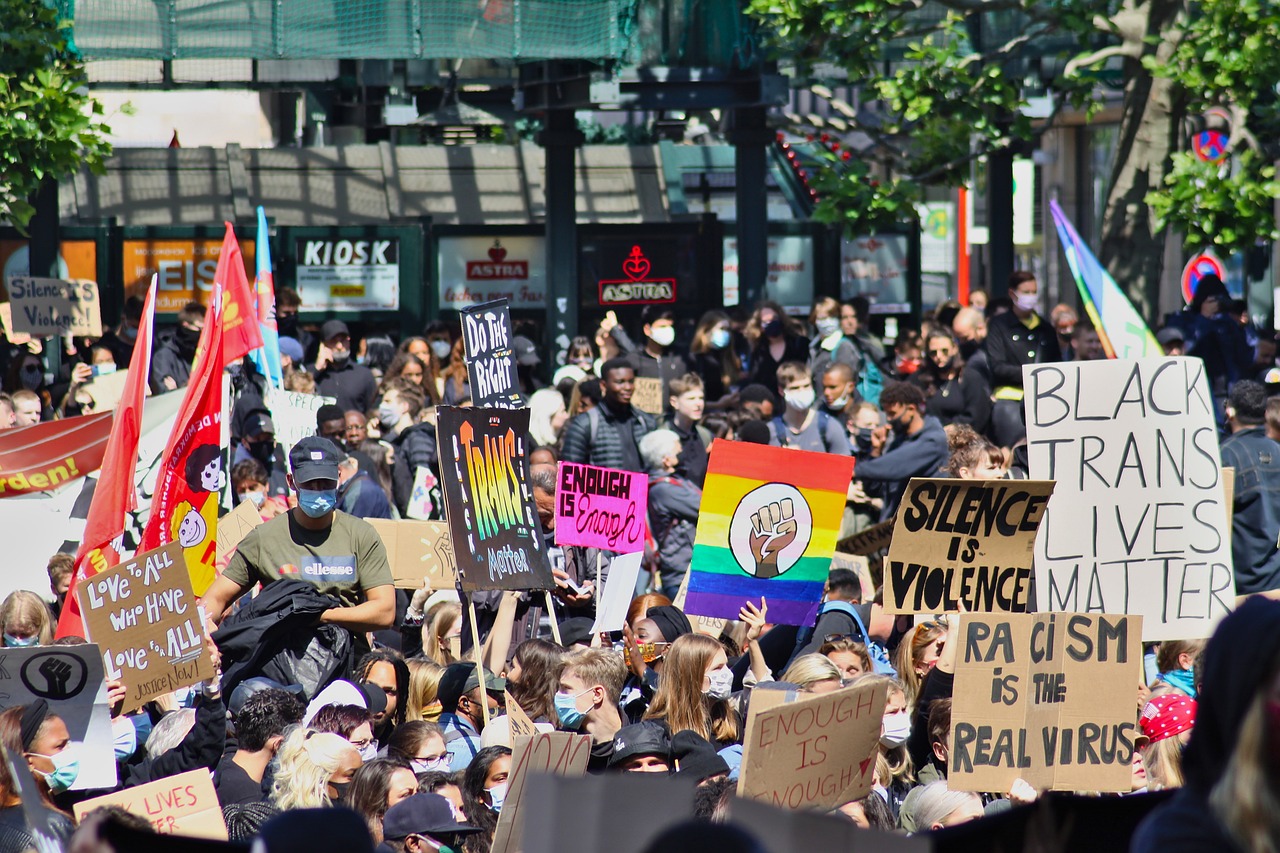
Modern-Day Consequences
The legacy of racism is not just a chapter in history books; it is a persistent and pervasive issue that continues to shape our world today. The consequences of racism are deeply embedded in the fabric of society, influencing everything from economic opportunities to healthcare access. In many ways, we are still grappling with the echoes of past injustices, and the ramifications are both personal and societal.
One of the most significant modern-day consequences of racism is the perpetuation of economic inequality. Studies have shown that racial minorities often face barriers to employment, wage disparities, and limited access to resources that can help them advance economically. For instance, data reveals that Black and Hispanic households earn significantly less than their white counterparts, which can be traced back to systemic discrimination in hiring practices and educational opportunities. This economic divide not only affects individuals but also stifles community growth and development.
Furthermore, racism contributes to disparities in healthcare access and outcomes. Racial minorities frequently encounter obstacles when seeking medical care, leading to poorer health outcomes and higher rates of chronic illnesses. A stark example of this can be seen in maternal mortality rates, where Black women are disproportionately affected compared to white women. The reasons for these disparities are complex, often rooted in a combination of socioeconomic factors, implicit biases in healthcare, and a lack of culturally competent care.
Moreover, the psychological toll of racism cannot be overstated. Individuals who experience racism may suffer from a range of mental health issues, including anxiety, depression, and post-traumatic stress disorder (PTSD). The constant stress of navigating a world that discriminates against them can lead to a diminished sense of self-worth and community belonging. This internal struggle not only impacts the individual but can also ripple through families and communities, creating a cycle of trauma that is hard to break.
Racism also fosters societal division, eroding trust among different racial and ethnic groups. When people are divided by race, it becomes challenging to build a cohesive society. This division can lead to social unrest, polarization, and even violence. The events of recent years have shown us how quickly tensions can escalate when racial injustices come to the forefront, highlighting the urgent need for dialogue and understanding.
In conclusion, the modern-day consequences of racism are multifaceted, affecting everything from economic stability to mental health and social cohesion. Addressing these issues requires a concerted effort from individuals, communities, and policymakers. By acknowledging the ongoing impact of racism, we can begin to forge a path toward a more equitable and just society for all.
- What are some examples of modern-day racism? Modern-day racism can manifest in various forms, including systemic discrimination in employment, education, and healthcare, as well as hate crimes and microaggressions.
- How does racism affect mental health? Experiencing racism can lead to increased levels of stress, anxiety, and depression, impacting overall mental well-being and self-esteem.
- What can be done to combat racism today? Combating racism requires education, open dialogue, policy changes, and community engagement to address systemic inequalities and promote understanding among different racial groups.
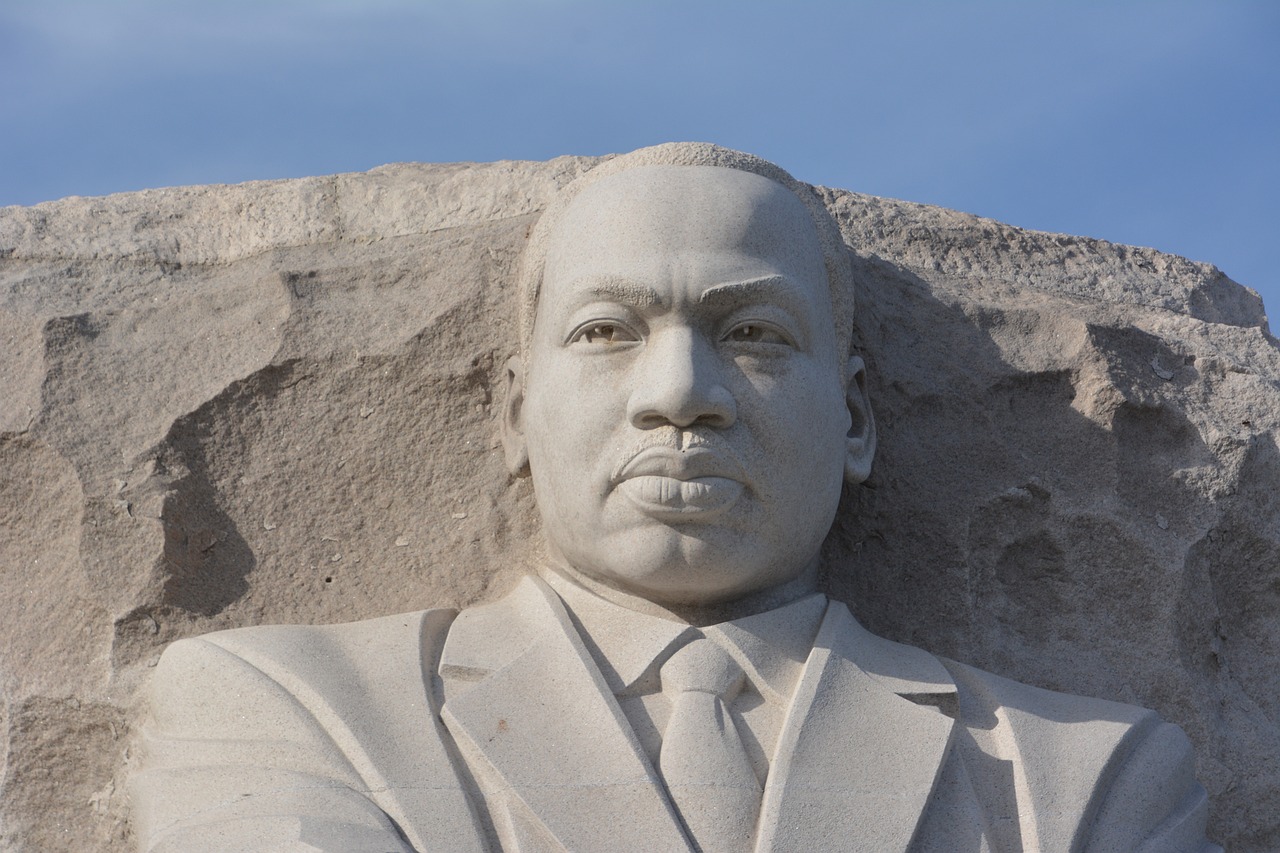
Racism and Moral Philosophy
When we dive into the realm of moral philosophy, we encounter profound questions about justice, equality, and human dignity. Racism, as an ethical issue, challenges the very foundations of these principles. Think about it: how can we proclaim that all humans are created equal while simultaneously allowing racism to persist? This contradiction lies at the heart of moral philosophy's critique of racism. Philosophers argue that racism is not merely a matter of personal prejudice but a systemic violation of ethical norms that govern our interactions and societal structures.
At its core, racism undermines the principle of justice. Justice, in a moral sense, demands that individuals are treated fairly and without bias. When one group of people is deemed superior to another based solely on race, they are not only denying the inherent worth of those deemed inferior but also disrupting the social contract that binds us together. This leads to a society where inequality is normalized, and the rights of individuals are compromised. The philosopher John Rawls famously proposed a theory of justice based on fairness, emphasizing that societal structures should be arranged to benefit the least advantaged. Racism clearly violates this principle, creating an unjust society where opportunities and resources are distributed unevenly.
Moreover, racism poses a significant challenge to the concept of equality. Moral philosophers like Immanuel Kant argued for the intrinsic worth of every individual, asserting that everyone deserves respect and consideration. Racism directly contradicts this notion by categorizing individuals based on arbitrary characteristics, leading to discrimination and dehumanization. This philosophical perspective urges us to recognize that every person, regardless of their racial background, possesses equal moral standing and should be treated as such.
Additionally, the psychological impact of racism cannot be overlooked. The philosopher Frantz Fanon explored how racism affects not only the oppressed but also the oppressor. He posited that racism distorts the humanity of both parties involved. The oppressed suffer from internalized racism, while the oppressors become morally bankrupt, losing their capacity for empathy and understanding. This cyclical nature of racism perpetuates a cycle of harm that is detrimental to societal well-being.
In examining racism through the lens of moral philosophy, we can also consider the implications of collective responsibility. Philosophers like Hannah Arendt emphasized that individuals must take responsibility for the actions of their society. Therefore, it is not enough to simply denounce personal acts of racism; we must also address the systemic nature of racism that permeates our institutions and cultural norms. This calls for a collective effort to dismantle racist structures and promote a more just and equitable society.
In conclusion, the intersection of racism and moral philosophy reveals the profound ethical failings that accompany racial discrimination. It challenges us to rethink our values and actions, urging us to strive for a society that truly embodies the principles of justice and equality. By engaging with these philosophical perspectives, we can better understand the moral imperative to combat racism in all its forms and work towards a more inclusive world.
- What is the moral philosophy's stance on racism? Moral philosophy views racism as a violation of fundamental ethical principles, advocating for justice and equality for all individuals.
- How does racism affect society as a whole? Racism erodes trust, fosters division, and undermines social cohesion, impacting the well-being of communities.
- Can individuals be morally responsible for systemic racism? Yes, individuals have a collective responsibility to address and dismantle systemic racism within society.

The Psychological Effects of Racism
Racism is not just a societal issue; it seeps into the very fabric of our minds, shaping our perceptions and experiences in profound ways. The psychological effects of racism are extensive and multifaceted, impacting not only those who are targeted but also the perpetrators and society as a whole. Imagine walking through life with a constant weight on your shoulders, a nagging voice that tells you you're less than others simply because of the color of your skin. This is the reality for many individuals who face racism daily.
For the victims of racism, the psychological toll can manifest in various forms. Studies have shown that experiencing racial discrimination can lead to significant mental health issues, including anxiety, depression, and even post-traumatic stress disorder (PTSD). The constant stress of being judged or mistreated based on race can create a state of hyper-vigilance, where individuals feel they must always be on guard. This not only affects their mental well-being but also their physical health, as chronic stress is linked to numerous health problems.
Furthermore, the impact of racism extends beyond the individual level. When we consider the broader societal implications, we see how racism erodes trust within communities. People begin to view each other through a lens of suspicion and fear, which can lead to a breakdown of social cohesion. This division is not just an abstract concept; it manifests in real-world consequences, such as increased crime rates and lower levels of civic engagement. When communities are fractured by racism, the collective well-being suffers, leading to a vicious cycle of mistrust and alienation.
One particularly insidious aspect of racism is internalized racism, where marginalized individuals begin to adopt the negative beliefs and stereotypes that society imposes on them. This can lead to a distorted self-image and low self-esteem. Imagine a young person who, after years of hearing derogatory remarks about their race, starts to believe these words hold truth. They may shy away from opportunities, believing they are not deserving, which ultimately hinders personal and professional growth. The ripple effects of this internalized negativity can be devastating, affecting relationships, career choices, and overall life satisfaction.
In addition to internalized racism, the effects of racism also influence interpersonal relationships within communities. When individuals harbor prejudices or have been victims of discrimination, it creates barriers to forming healthy connections with others. Trust is a fundamental component of any relationship, and when racism is present, it acts as a corrosive agent, eating away at the foundation of mutual respect and understanding. This can lead to a cycle where individuals isolate themselves, further perpetuating feelings of loneliness and despair.
To truly understand the psychological effects of racism, we must also consider the role of societal narratives and media portrayals. The stories we tell and consume shape our perceptions of race and identity. When media perpetuates stereotypes or fails to represent diverse voices, it reinforces harmful beliefs and attitudes. The result is a society where racism is not only tolerated but often normalized. This normalization can desensitize individuals to the impact of their words and actions, leading to a culture where discrimination is perpetuated.
In conclusion, the psychological effects of racism are profound and far-reaching. They touch every aspect of life, from individual mental health to societal trust and cohesion. Addressing these effects requires a collective effort to challenge the narratives that fuel racism and to foster environments where all individuals can thrive without the burden of prejudice. Only then can we hope to heal the wounds inflicted by racism and build a more equitable society for everyone.
- What are the long-term effects of racism on mental health?
Long-term exposure to racism can lead to chronic stress, anxiety, depression, and a range of physical health issues. - How can individuals combat internalized racism?
Engaging in positive affirmations, seeking supportive communities, and educating oneself about cultural heritage can help combat internalized racism. - What role does media play in perpetuating racism?
Media representations can reinforce stereotypes and shape public perceptions, making it crucial to promote diverse and accurate portrayals of all racial groups.
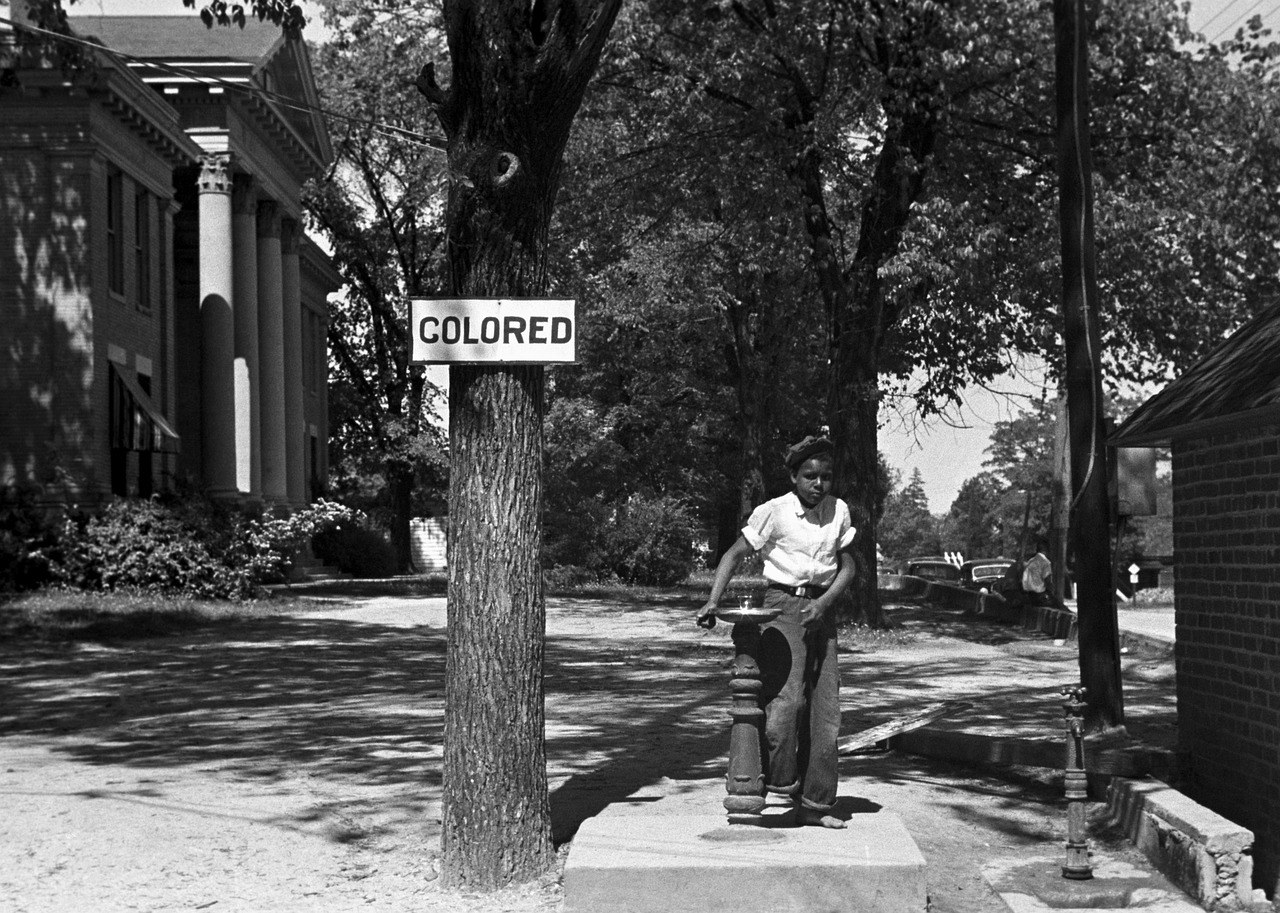
Internalized Racism
Internalized racism is a profound and often overlooked aspect of the broader conversation about race and discrimination. It occurs when individuals from marginalized racial or ethnic groups begin to adopt the negative stereotypes and beliefs that society holds about their own race. Imagine a mirror reflecting not just your image, but also the prejudices and biases that society has constructed around you. This reflection can distort self-perception, leading individuals to feel inferior or unworthy simply because of their racial identity.
The psychological toll of internalized racism can be devastating. It often manifests in low self-esteem, self-hatred, and a disconnection from one's cultural identity. For instance, a person might believe that they must change their hair, speech, or mannerisms to fit into a predominantly different culture, which can lead to a sense of alienation from their own community. This internal struggle can create a cycle of shame and confusion, where individuals feel caught between two worlds, neither of which they fully belong to.
Moreover, internalized racism can have broader implications for community cohesion. When individuals within a marginalized group internalize negative stereotypes, it can lead to divisions within the community itself. People may begin to judge each other based on how closely they align with mainstream societal expectations, rather than celebrating their unique cultural identities. This can result in a lack of solidarity, making it even more challenging to combat systemic racism and advocate for collective rights.
To illustrate the impact of internalized racism, consider the following table, which outlines some common effects:
| Effect | Description |
|---|---|
| Low Self-Esteem | Individuals may feel unworthy or inferior, affecting their confidence and mental health. |
| Identity Confusion | Struggles with cultural identity can lead to confusion about one’s place in society. |
| Community Division | Internalized beliefs can create rifts within marginalized communities, hindering unity. |
| Negative Self-Perception | Adopting societal prejudices can lead to self-hatred and rejection of one’s racial identity. |
Addressing internalized racism requires a multifaceted approach. Education and awareness are vital in breaking the cycle. By fostering environments that celebrate diversity and promote positive representations of all racial identities, communities can begin to heal. It’s essential for individuals to engage in conversations about race and identity, empowering one another to embrace their heritage and reject harmful stereotypes. Support groups and community organizations can play a crucial role in providing safe spaces for individuals to share their experiences and heal collectively.
Ultimately, combating internalized racism is not just about individual change; it’s about transforming the societal structures that perpetuate these harmful beliefs. By challenging the narratives that have been imposed upon marginalized communities, we can work towards a future where everyone feels valued and proud of their identity. This journey towards self-acceptance and community empowerment is essential for dismantling the deep-rooted effects of racism in our society.
- What is internalized racism? Internalized racism refers to the internalization of negative beliefs and stereotypes about one’s own racial or ethnic group.
- How does internalized racism affect individuals? It can lead to low self-esteem, identity confusion, and division within communities.
- What can be done to combat internalized racism? Education, awareness, and community support are crucial in addressing and overcoming internalized racism.
- Why is it important to address internalized racism? Addressing it is essential for personal healing and for fostering unity within marginalized communities.
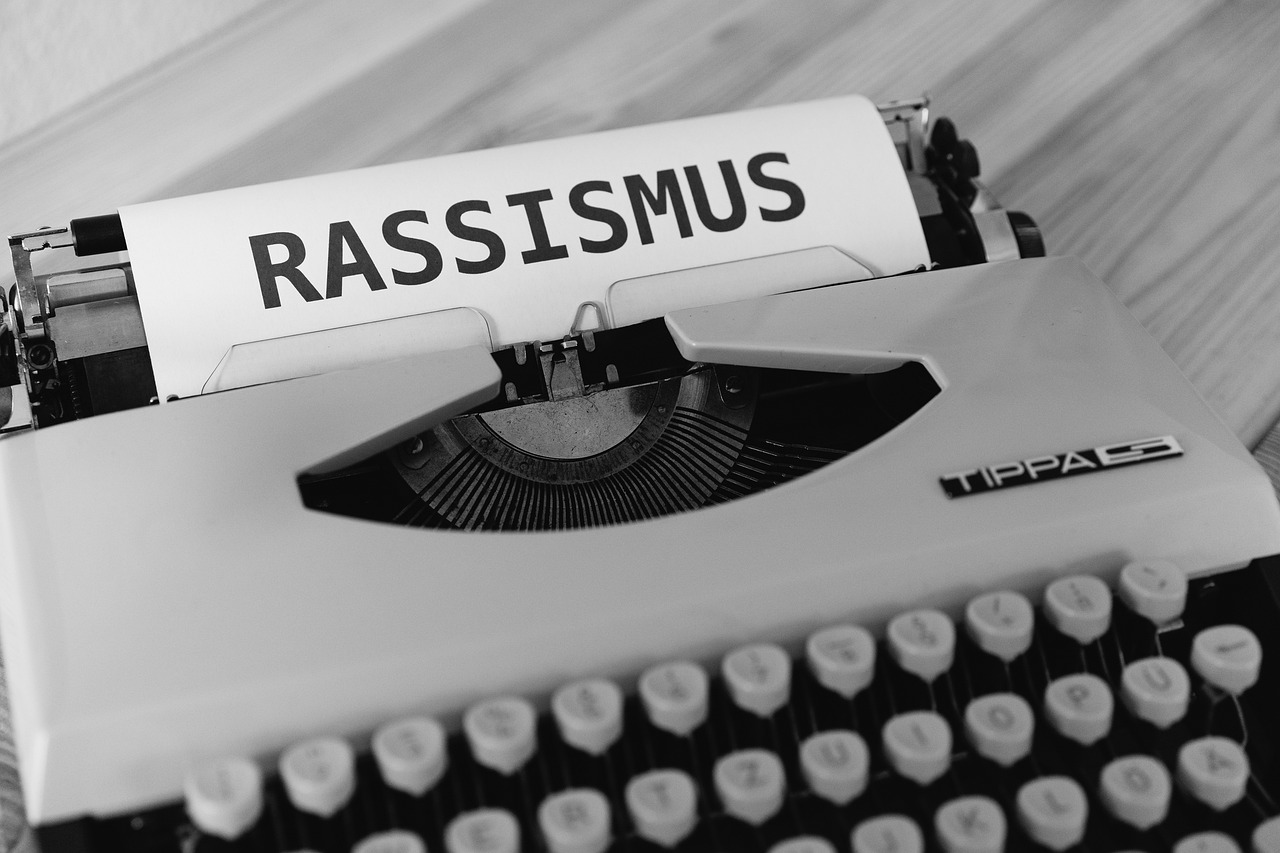
Societal Implications
Racism is not just a personal failing; it is a societal poison that seeps into the very fabric of our communities. The implications of racism extend far beyond the individual experiences of those who are targeted. It creates an environment of distrust and division that can fracture the social bonds that hold communities together. When people are judged based on the color of their skin rather than their character, it fosters a culture of fear and resentment, which can lead to increased tensions and violence. This is not just an abstract idea; it manifests in real-world consequences that affect everyone.
Consider for a moment the ripple effects of racism. When one group feels marginalized or oppressed, it doesn’t just hurt them; it creates a ripple effect that can destabilize entire communities. For example, neighborhoods that experience racial tensions often see a decline in economic opportunities, as businesses are less likely to invest in areas perceived as unsafe or unstable. This economic downturn can lead to higher crime rates, further exacerbating the cycle of distrust and division.
Moreover, racism can erode the foundational trust that is essential for a healthy society. When individuals perceive their neighbors as adversaries based solely on race, it undermines the collaborative spirit needed to tackle communal challenges. Schools, workplaces, and local governments all suffer when racism takes root, as the potential for cooperation and shared goals diminishes. In a society where racism is prevalent, the narrative becomes one of 'us versus them,' creating barriers to understanding and empathy.
In addition, the societal implications of racism can be seen in the way policies are shaped and enforced. Systemic racism leads to disparities in education, healthcare, and justice. For instance, studies have shown that minority communities often receive inferior educational resources, which perpetuates a cycle of poverty and limited opportunities. This inequity is not just a byproduct of individual prejudices; it is woven into the policies and practices that govern our institutions. The result? A society that thrives on inequality, where potential is stifled, and dreams are deferred.
Furthermore, racism can lead to a phenomenon known as internalized oppression, where marginalized groups begin to adopt the negative stereotypes imposed upon them. This can create a toxic environment where individuals feel they are not worthy of success or happiness, leading to a host of psychological issues, including anxiety and depression. The societal implications of this self-doubt are profound, as it affects not only the individuals but also the communities they belong to. When people do not believe in their own worth, it diminishes the collective potential of society.
Ultimately, the societal implications of racism are a stark reminder that we are all interconnected. The harm caused by racism does not stop at the individual level; it permeates through families, neighborhoods, and entire communities. It is a moral failing that calls for action, understanding, and a commitment to change. To combat racism effectively, society must embrace diversity and work towards creating an environment where every individual is valued and respected. Only then can we hope to build a future that is equitable and just for all.
- What is racism? Racism is the belief that one race is superior to another, leading to discrimination and prejudice based on race.
- How does racism affect society? Racism creates division, erodes trust, and perpetuates inequality, impacting economic opportunities and social cohesion.
- What are the psychological effects of racism? It can lead to trauma, anxiety, and a diminished sense of self-worth among marginalized individuals.
- How can we combat racism? Combating racism requires education, open dialogue, and a commitment to equity and justice in all aspects of society.
Frequently Asked Questions
- What is racism?
Racism is the belief that one race is superior to another, leading to discrimination and prejudice based on racial or ethnic group. It can manifest in individual attitudes and systemic practices that perpetuate inequality and injustice.
- How does racism affect society?
Racism creates divisions within society, erodes trust among communities, and undermines social cohesion. It can lead to systemic inequalities in areas such as education, employment, and healthcare, affecting the overall well-being of marginalized groups.
- What are the psychological effects of racism?
The psychological effects of racism can be profound, leading to trauma, anxiety, and depression among those targeted. Additionally, it can cause internalized racism, where individuals adopt negative beliefs about their own racial identity, impacting self-esteem and community bonds.
- How does colonialism relate to racism?
Colonialism has historically been justified through racial superiority, leading to the oppression and exploitation of indigenous populations. The ideologies developed during this period continue to influence modern-day racism and systemic injustices.
- Can racism be eliminated?
While completely eliminating racism is a complex challenge, it is possible to reduce its prevalence through education, awareness, and systemic change. Promoting inclusivity and equality can help dismantle racist attitudes and practices.
- What can individuals do to combat racism?
Individuals can combat racism by educating themselves and others about its impacts, speaking out against discriminatory practices, and supporting policies that promote equality. Engaging in open conversations about race can also foster understanding and empathy.
- What is internalized racism?
Internalized racism occurs when individuals from marginalized groups adopt the negative beliefs and stereotypes about their own race. This can lead to diminished self-worth and affect community cohesion, making it harder for individuals to embrace their identity.
- Why is it important to understand the historical context of racism?
Understanding the historical context of racism is crucial because it helps us recognize the deep-rooted systems of inequality that persist today. By learning about the past, we can better address the present challenges and work towards a more equitable future.



